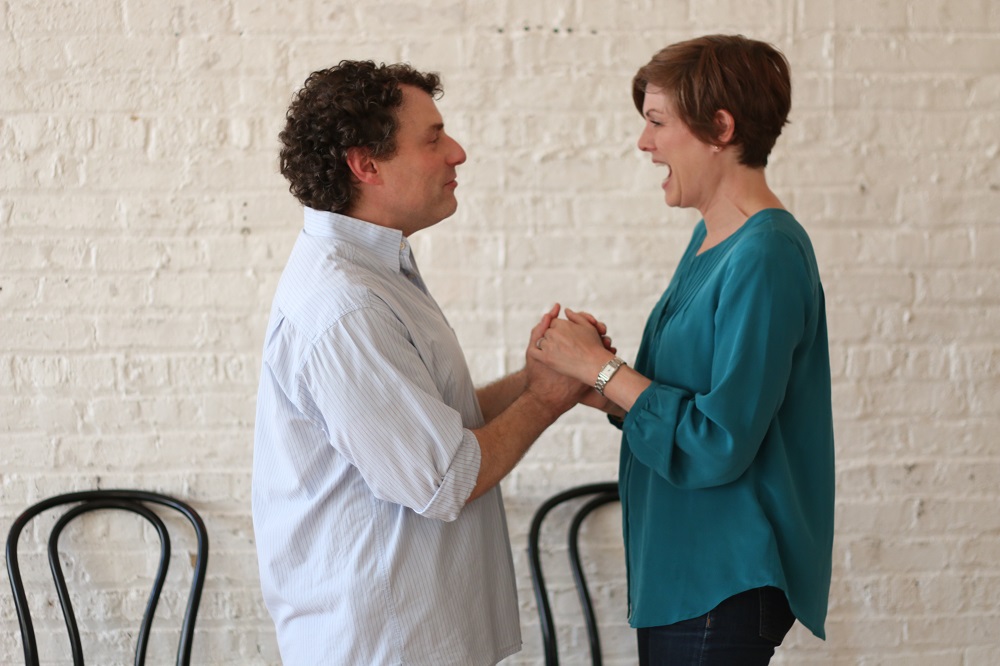6 Reasons Actors Should Take an Improv Class

Actors are often skeptical of taking an improv class. I can’t tell you how many actors tell me “I am a serious actor. Why do I need to take an improv class?” Or they say, “I’m not funny,” “It scares me,” or “I wouldn’t be any good at it.”
Actors avoid taking improv classes for lots of different reasons, but the truth is, improv classes make people better actors. I don’t care if you don’t do comedy or you don’t think you are funny. Improv is not necessarily about being funny at all, but instead it is a methodology that can make you a better actor by making you more real, more able to react honestly in the moment and more.
So before you come up with any more excuses I haven’t even thought of, here are six things that improv classes can help you with as an actor.
- Be More Playful
In my experience, the best actors bring a sense of playfulness to any role they undertake. If they’re playing a dark or disturbing role, you might call this mischief or danger, but underneath they are enjoying it. Unfortunately, too many actors think they need to be serious because they think that’s what good acting is. But remember, when we act in a PLAY, we’re supposed to it PLAY in the imaginary circumstance. Play means to have fun. When I was little kid we played SWAT. We took it seriously and didn’t break out of our police characters, but underneath we were having fun capturing the bad guys. Though I have comedy background, I have been cast in TV and film parts that would be considered “serious acting” roles. And I landed those roles even though I was playing a jerk or a scared prison guard because deep down I was enjoying playing that part. I learned that all in improv.
- Take Direction
When I go into an audition I have prepared at home in front of the mirror a certain way. But what happens if the casting people want to see it another way? Some actors freeze and end up blowing the audition. If only they had a little improv under their belt so they could be more adaptable. I once landed a role on ER as Manny the used car salesman because I asked a question in the casting session which led me do it the opposite way that everyone else had just done it, and guess what? I got the part. Thanks to improv, I could adjust do things differently.
- Be in the Moment
I love watching great acting because even though the actors are saying someone else’s words, they are reacting as if they have never heard those words before. It’s as if they are improvising with a script. Improv teaches you how to be in the moment so your emotional reactions can feel truly authentic and genuine.
- Take Risks
Great actors take risks. They surprise you with their choices. They are constantly taking risks at the audition, in rehearsal and during the run of the show. To get there you have to give yourself permission to constantly experiment. In improv, you’re forced to take risks and put yourself out there without a safety net, and one of the most important improv philosophies is that there are no mistakes, which encourages people to take risks in supportive environment. By practicing taking risks in improv, you’ll be able to take bigger risks in your acting as well.
- Be More Confident
Whenever an actor takes one of my improv classes or workshops, I’m always amazed at how much their confidence level improves. After two weeks, I’ll have actors come into class and say, “I am auditioning better, I’m having more fun, and I have a new-found confidence.”
- Be More Believable
What actor does not want to be more believable? But sometimes when we get a script in our hands, we become more concerned with the words on the page than with relating to our scene partners. The dialogue that comes out of our mouth seems lifeless and flat, like we’re robots who don’t know how to relate to people. Taking improv classes helps actors become more fluid with their own words, which eventually helps you become more at ease with others’ words, too. Once you’ve overcome the fear of creating your own dialogue in improv, reciting from a script will seem easy.


Excellent Jimmy! With the exception of #6, all of those are perfect examples of how improv can help your everyday life too.
Thank you!
Here's a number 7:
Learn your place.
Improv is writing on your feet. So, if you're doing improv and you are able to intuit what a scene needs, you are thinking big picture. A scripted actor might be tunnel-visioned and not realize that they are part of a tapestry. By improvising, you can instantly get into the head of a writer and director. Suddenly, your two-line scene in that next short film might seem a bit more substantial.